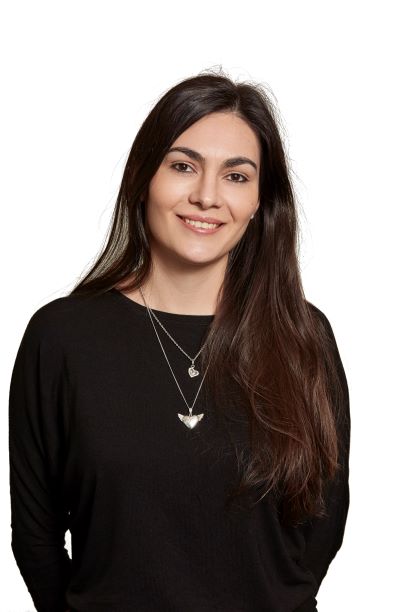19.11.2020
Welcome to our new interview series: Interviews with the Experts.
In this series we ask some of the leading experts in the field of AMR and One Health for their take on progress, leadership and challenges.
Our first interviewee is Jo Raven, Senior Manager for Engagements from The FAIRR Initiative.

Hi Jo, please can you tell us a bit about yourself?
I joined FAIRR in October 2017 and I manage FAIRR’s collaborative engagements with global food companies, including FAIRR’s workstream on antibiotics stewardship. I am responsible for the analysis and evaluation of retailers and brand manufacturers and I also work closely with investor members to develop and integrate sustainable food systems as a key priority.
What work have you been doing on AMR in the last few years?
FAIRR is a collaborative investor network founded by Jeremy Coller. It aims to raise awareness of the material risks and opportunities surrounding intensive animal production and the global protein supply chain. From our London-based office, now of course from our homes, we support our investor members to use their influence to both safeguard the value of their portfolios, and work towards a more sustainable food system.
FAIRR and its investor members recognise the routine non-therapeutic use of antibiotics in livestock production as a leading cause of rising antimicrobial resistance, and therefore a major risk to public health. Antibiotic resistance is a material risk not only for food companies but also presents a systemic risk across multiple sectors including the pharmaceutical, healthcare and insurance industries.
For over three years, FAIRR has been working in collaboration with groups of investors to improve antibiotics stewardship in livestock production through direct engagement with companies and providing expert research and guidance including a best practice policy for food producers and retailers. Our engagement with 20 global fast food companies to improve their antibiotic stewardship was supported by 73 investors with $4.9 trillion in combined assets. FAIRR has also coordinated a Global Investor Statement on Antibiotics Stewardship which 74 investors representing over $3.4 trillion in combined assets have signed onto urging food companies to take action and phase out routine, non-therapeutic use of antibiotics across all livestock, seafood and poultry supply chains.
Most recently, we are working with the Access to Medicine Foundation, the UK Government and the Principles for Responsible Investment (PRI) to encourage investors to commit to tangible actions as part of the Investor Action on AMR initiative.
That sounds like a lot! Thinking on a global level, how do you think global AMR community has responded to the Covid-19 pandemic?
I think there is a lot of behind the scenes work happening at the moment in order to establish a long-term action plan for addressing AMR in humans, animals and the environment at national and global levels.
So looking ahead, will the pandemic affect the global response to AMR over the next few years?
Absolutely – it has helped escalate the sense of urgency. At least from the investor perspective, the impact of AMR could lead to significant downside risk across industries.
It's good to hear that it has pricked up the ears of investors to this issue. Do you think though that the public’s perception of the AMR risk has changed because of the pandemic?
Yes, I think it has become more important. The current COVID-19 pandemic has not only demonstrated the significant impacts that human health risks have on economies and societies worldwide, but also the importance of investing in preventative healthcare - including safeguarding our ability to treat infectious diseases with existing antibiotics.
The pandemic has increased the urgency for a global food system transformation. It has pushed the meat-processing sector to breaking point and helped accelerate consumption of alternative proteins. It has forced consumers worldwide to rethink how they eat and what they eat, given supply chain disruptions and increasing concern over the link between meat production and viral diseases. As a result, the use of antibiotics in intensive animal production is now under increasing scrutiny by consumers and investors worldwide.
What lessons have you learned personally from this pandemic?
I have previously wasted a lot of time in unnecessary meetings, and not having to commute to London has been life changing!
Hear hear to no more time-wasting meetings! What do you think the most important thing is for the next year in fighting AMR?
A more coordinated approach that involves key decision-makers across the private and public sector, as well as regulation.
What can we do to help bring down the amount of antibiotics used on farms?
On a personal level, eat less and higher quality meat. Demand for protein is projected to increase overall, which is why global diets need to become more balanced and diversified, with a greater focus on less and higher quality meat and greater plant-based and alternative protein (fruits and vegetables, grains, pulses, meat analogues, cell-based meat, and insects) consumption.
For more information about The FAIRR Initiative, visit their website here and follow them on twitter @FAIRRInitiative.

